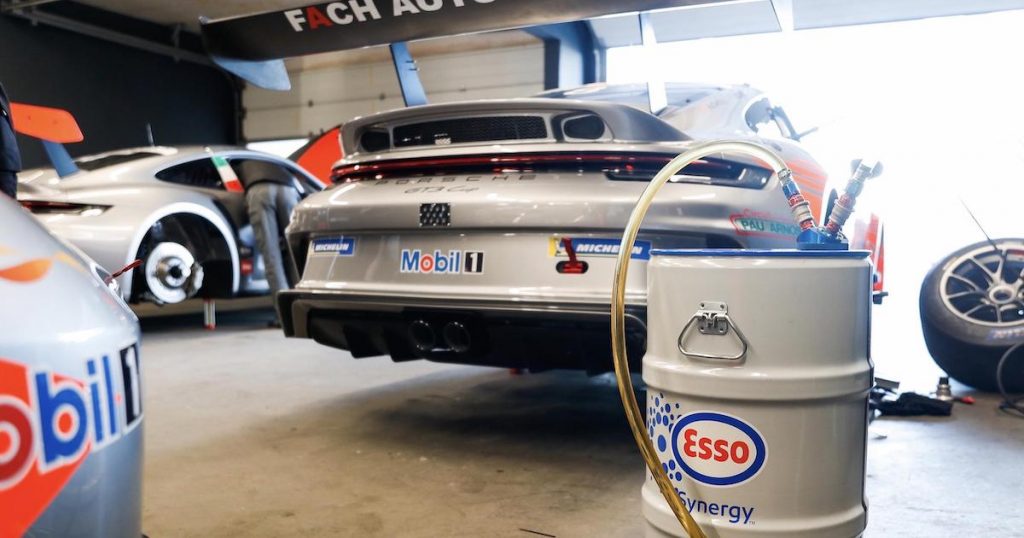Racing goes renewable
Motorsport is a sensation: A combination of overwhelming sound and speed.
The science of high-performance vehicles is founded on the internal combustion engine. Electric vehicle racing offers no shortage of thrills, but is decried by rusted-on motorsports enthusiasts for a lack of drama.
A criticism fuelled by the absence of howling motors and flamethrowing exhausts that can define racing.
As electrification continues to proliferate, German performance devotees Porsche are testing a solution that could reduce race car emissions up to 85 percent while retaining racing’s explosive aural experience.

Advanced biofuels and renewable lower-carbon eFuels took to the track in 2021. The specially-formulated Esso Renewable Racing fuel was successfully tested in the Porsche Mobil 1 Supercup.
In 2022, Porsche has doubled down with a $100AUD million investment, taking a 12.5 per cent stake in a company researching and developing biofuels. It is claimed Porsche could be manufacturing biofuels in Australia as early as 2026.

What’s biofuel? Drive.com.au explains;
“Also known as eFuel, synthetic fuel is made from blending hydrogen (sourced from water) and carbon (harvested from the atmosphere) into a hydrocarbon, which is then processed into a liquid fuel very similar to what is currently available at service stations. In fact, synthetic fuel can be used as a direct replacement for fossil fuel petroleum in a modern petrol engine.”
As the world looks to electrified mobility, it appears these next-generation fuels may be able to renewably preserve some of the spectacle of motorsport and classic vehicle icons as we move to a low emissions future.
Want more low emissions car content?
Will your next car be powered by hydrogen?
Explorewith Natural Gas Subscribe


